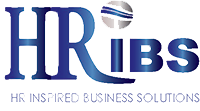I remember the times when I didn’t get the jobs I wanted, I felt really crestfallen and bummed-out. It can be hard not to take job rejection personally. However, at some point in the job search process, you will be turned down for a role. Do not give up on yourself, focus on moving forward with using a different strategy. Whenever I felt disappointed about something my grandma would calmly say the old adage “every disappointment is a blessing in disguise.”
6 Tips on How You Can Recover After A Job Rejection
#1 Practice Self-reflection
Failure and mistakes can be a hell of a great thing. Why? Because you get to revamp, rethink, redo, and allow your creative juices to flow further. Instead of remaining stuck in an emotionally negative self-talk narrative about your professional life, choose to get connected to your reality. Try to work on a personal SWOT analysis. Doing this exercise will help you focus on leveraging your strengths and opportunities and strengths to become marketable. Take ample time to review and update your resume, cover letter, and LinkedIn profile. You may have a challenging time doing this on your own so I suggest you work with a career coach or mentor. Remember to practice, practice using mock interview questions.
#2 Start To See The Setback As A Comeback
Sometimes, it can be a good thing to be passed over for a job, you may have been saved from working in a toxic environment with pathetic people. You will eventually find that job that will align with your values and offer professional development. When your professional life has taken a noise dive so people in your professional circle may be quick to judge and offer their unwanted suggestions. Keep pressing on because at some point you will overcome setbacks and disappointments. So right now, catapult yourself off the nursery bench and get into action by creating a to-do-list. If you feel discouraged and despaired just remind yourself of your aspirations and keep following them.
#3 Give Yourself A Pat On The Back
Yes, you showed up and did your best at the interview. You may have not landed that job, however, your resume was impressive enough to be selected from hundreds of other applicants. You did not avoid the tasks of preparing for the job interview, you were self-disciplined. Remember that your failure is actually an integral part of your success. Don’t allow inferiority, insecurity, and self-doubt to cloud your vision. An important aspect of creating a career road map is to identify, label, and formulate a strategy for any roadblocks. Stay positive.
#4 Master the Fine Art of Effective Communication
Everyday make it a habit to work hard on sharpening your communication skills. For example, work on keeping your resume or cover letter concise, write as you were having a conversation with a hiring manager was sitting in front of you. Be sure your written and verbal communication is appropriate by avoiding slang and jargon. Practice until you have mastered the skills of an active and attentive listener. Learn how to ask open, closed, or specific questions for your next job. Be impeccable with your words read, The Four Agreements, author Miguel Ruiz.
#5 Be Relentless
You have been knocked down a few too many times, and it’s completely fine to feel discouraged. Don’t give up, keep the momentum. When you don’t know whether you are going in the right direction, up or down, and just remain determined to follow your passion. You may stumble often before you reach your goals but remember you will eventually rise. Do not allow fear to create analysis paralysis, instead focus on moving forward with using a solid strategy. For example, you can consider networking differently on LinkedIn look for likeminded professionals. Also, attend professional events virtually or in person.
#6 Create A Game Plan
The more you think about your future. the more anxious and excited you may become. The deeper your thoughts processes will remain in your subconscious when you focus on what you really to accomplish. Consider putting together your personal vision statement. Describe what you want, visualize it, and write it until you get it. In addition, set daily, weekly monthly, and yearly goals for your professional and personal life. Working towards your dream job requires you to take action, consistent action. Be ready for your next job opportunity to be one that is filling, and rewarding.
Learn how to create an impressive resume, cover letter, and LinkedIn profile. Schedule a free consultation by visiting https://hribs.com/contact


